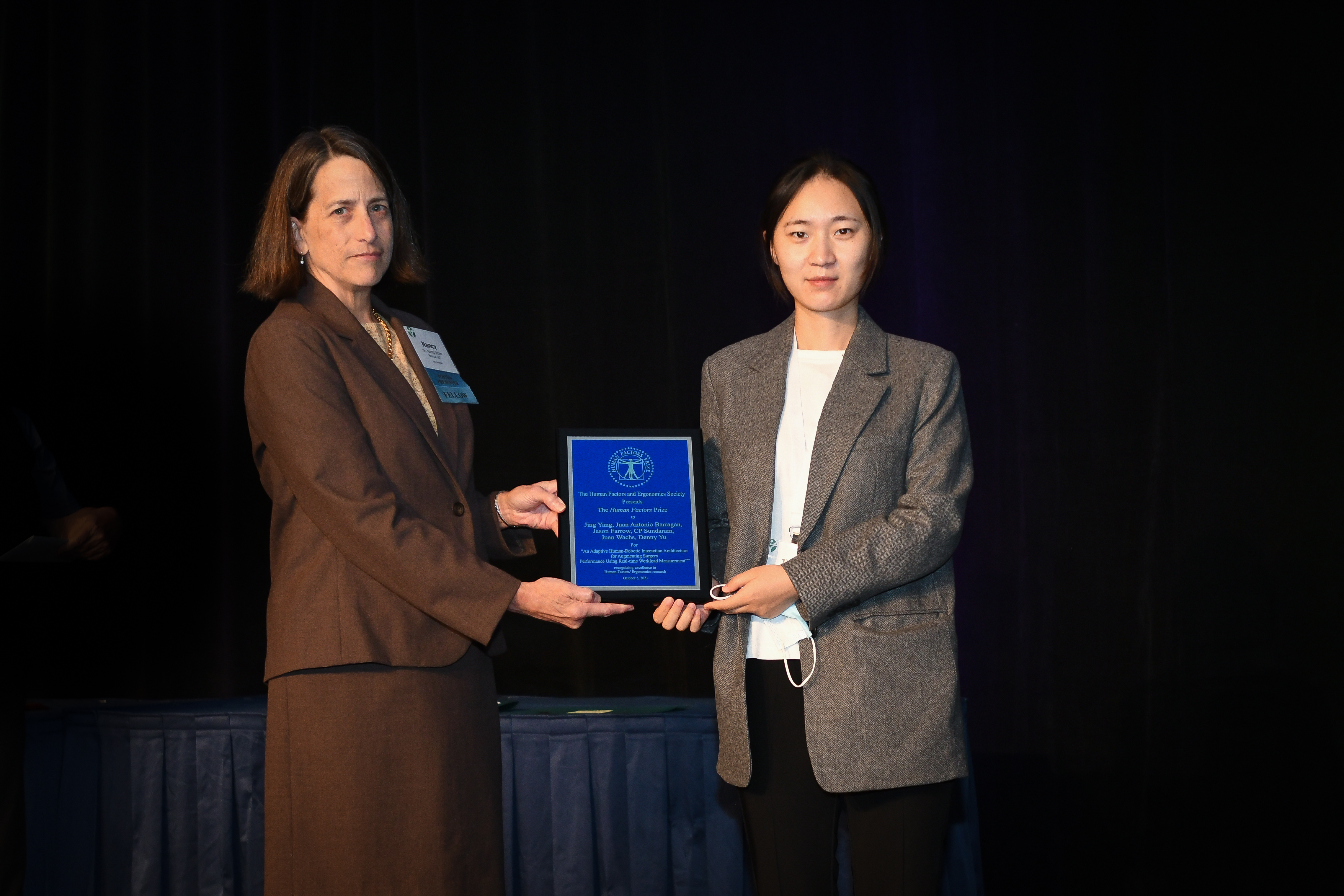HFES 2021 Human Factors Prize goes to Purdue

IE Ph.D. student, Jing Yang, recent MSIE graduate, Juan Antonio, clinicians Jason Farrow & Chandru Sundaram, and IE professors, Juan Wachs and Denny Yu. worked together on the research being honored. The Human Factors Prize was presented at the HFES Annual Meeting in Baltimore, MD (October 4 – 7, 2021).
The work being recognized was part of work funded by NIH grant, R21EB026177 (https://reporter.nih.gov/search/DIjWhG5TbUSNg3onyd6sXQ/project-details/9983030) and has not yet been published.
An Adaptive Human-Robotic Interaction Architecture for Augmenting Surgery Performance Using Real-time Workload Measurent
Jing Yang, Juan Antonio, Jason Farrow, Chandru Sundaram, Juan Wachs, and Denny Yu
ABSTRACT
The goal of this study is to develop and evaluate a neuroadaptive system that monitors cognitively demanding situations and provides corresponding assistance to surgeons in robotic-assisted surgery (RAS). Increased complexity of the robotic surgery system makes operators overwhelmed with multiple sources of information. The need for precise, continuous assessment of human operator mental workload states is important to identify when the interventions should be delivered to help surgeons maintain optimal workload states and performance. 15 participants were recruited to evaluate the effectiveness of the proposed system. Each participant performed a needle pass task on da Vinci robot along with an auditory secondary task under the condition with and without the real-time intervention system, respectively, and their quantitive task performance metrics were compared using the pairwise t-test. The results indicated that the proposed system was able to infer the operator’s workload with the accuracy of 78% and can dynamically apply an appropriate adaptation strategy for a given situation. The performance metrics of primary task and secondary task were improved when the proposed system was implemented in surgical training. The real-time workload monitor through the physiological sensors can potentially be used to identify the overwhelming situation during surgery and provide assistant accordingly. The framework of this neuroadaptive system construction can be adapted to other fields to improve operator’s safety and efficiency by monitoring their mental states continuously.
